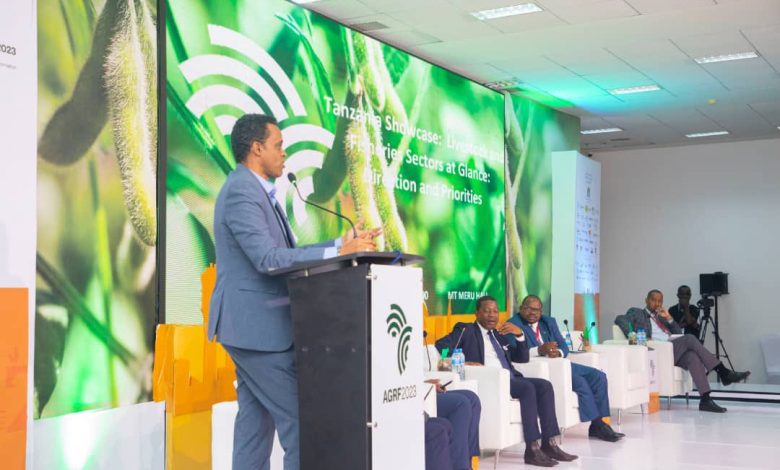KIlimokwanza.org Reporter
Hussein Bashe, Tanzania’s Minister of Agriculture, has called on the Tanzania Agricultural Development Bank (TADB) to ensure it provides advisory services and capacity building to farmers to enable economic upliftment. He made these remarks yesterday during the launch of the TADB West Zone office, which will serve the regions of Tabora, Katavi, and Kigoma, in the city of Tabora.
Bashe emphasized the significant responsibility of the bank in offering proper education and advice to farmers to expand the scope of services with favorable and enabling conditions for small, medium, and large-scale farmers. He stressed that the availability of affordable loans for farmers, fishermen, and livestock keepers would further stimulate business growth in the value chain within the serviced regions.
The minister urged the agricultural bank to provide loans with favorable terms, lower interest rates, and longer repayment periods to facilitate access to capital, thus revolutionizing the agriculture sector.
Previously, the CEO of TADB, Frank Nyabundege, briefed Bashe that from January 2020 to December 2023, the bank disbursed loans totaling 516 billion Tanzanian Shillings directly. He stated that these loans were for the development of agricultural, livestock, and fisheries projects in the country.
Nyabundege explained that out of the disbursed amount, 448 billion Shillings were allocated to crop farming, 60.43 billion Shillings to livestock, and 7.5 billion Shillings to the fisheries sector. He further elaborated that these loans were provided for various projects across 27 regions, 125 districts, and 151 farmers’ associations.
The CEO continued to highlight that as of February this year, TADB has facilitated farmers and livestock keepers by providing loans worth 19.5 billion Shillings, with Kigoma region receiving 7.2 billion Shillings, Katavi region receiving 2.394 billion Shillings, and Tabora region receiving 9.996 billion Shillings. These loans were allocated for projects involving rice, sunflower, beans, maize, cattle fattening, ginger, poultry farming, pig farming, and sheep farming.
